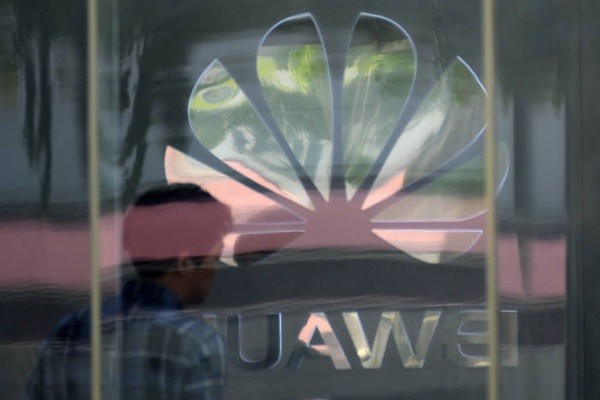KT and LG Uplus are working on setting up backbone network without any equipment from Huawei.
This is the first incident in South Korea where Huawei’s telecommunication equipment was excluded since President Trump declared ‘national emergency state’ while banning Huawei’s telecommunication equipment.
This decision is seen more than just a simple ‘multi-vender strategy’ as it was made while the U.S. and China are having a huge trade war. Some are concerned about a possibility of ‘second THAAD (Terminal High Altitude Area Defense) retaliation’. While the U.S. and China are having a trade war, South Korea is contemplating on whether it should seek for diplomatic agreement and benefits or limit using Huawei’s equipment.
◊South Korean businesses begin to stop using Huawei’s equipment
It seems that growing concerns on security issue of Huawei’s telecommunication equipment are forcing South Korean businesses to stop using Huawei’s equipment for their network.
KT entrusted Infinera, an American optical transmission equipment business, with setting up its new backbone network. It is estimated that the construction will require about $8.43 million (10 billion KRW). KT decided to extend capacity of its backbone network to prepare for 5G network and 10 GiGA Internet. While major equipment of its current backbone network belongs to Huawei, KT decided to use another manufacturer for its new backbone network.
LG Uplus also decided not to go with Huawei for extension of its backbone network. Although it did not select a business yet, it is going to select someone other than Huawei. U.S. Armed Forces in Korea are the biggest reason. It is heard that U.S. Armed Forces requested LG Uplus not to use Huawei’s equipment for its entire network. There was an issue between them and LG Uplus as LG Uplus had used Huawei’s equipment for its LTE and 5G network.
“There have been continuous discussions between LG Uplus and U.S. Armed Forces regarding Huawei’s 5G base station equipment.” said a representative for the telecommunication industry. “It seems that there has been rapid development of progress ever since President Trump gave an executive order.”
It will be interesting to see whether telecommunication businesses continue to stay away from Huawei’s equipment. After President Trump gave an executive order, there is an increase in number of South Korean businesses that are considering what to do with Huawei’s equipment.
Prime example is NH Bank. NH Bank selected KT-Huawei consortium as the preferential candidate in November of last year for its $84.3 million (120 billion KRW) project that will enhance wired telecommunication network of its branches. When security issue with Huawei’s equipment started to spread and even leading to trade conflict between the U.S. and China, it is heard that NH Bank is going to make a decision shortly on whether it is going to halt this project or not.
“It is not appropriate for us to state our opinions on Huawei’s equipment at the moment as we have an agreement with KT.” said a representative for NH Bank. “We are currently looking into legal reviews since our wired telecommunication network expands deep into rural areas.”

◊Growing controversy surrounding security issue of Huawei’s equipment
Issue regarding security of Huawei’s telecommunication equipment continues to worsen. Although Huawei has been stating that there is no evidence whenever this issue was at the center of controversies, it seems that there are evidences that allege Huawei leaving ‘backdoor’ in its equipment.
There was a foreign report on the 16th, which was right after President Trump signed on an executive order on ‘procurement of information communication technology and service supply network’, that said that information authorities from Netherland are investigating Huawei for installing ‘backdoor’ in its equipment. This report alleged that Huawei was stealing customers’ information through mobile network from Vodafone and T-Mobile.
At the end of April, Vodafone Italy revealed that it found evidences of ‘backdoor’ from Huawei’s household routers between 2009 and 2011. In early April, research team from Microsoft found cases of ‘backdoor’ inside of Huawei’s laptop. Regarding these findings, Huawei refuted by saying that they were simply a mistake.
South Korean Government and businesses are in a fickle situation. Aside from growing concerns on Huawei’s telecommunication equipment, they need to decide on what they are going to do as they are pressured from both sides by U.S. Government and Chinese Government. Some are concerned that there can be recurrence of ‘THAAD retaliation’.
“South Korean businesses took a huge blow in China due to THAAD retaliation.” said a representative for a South Korean business in China. “We need to prevent any side-affect from this issue surrounding Huawei.”
There is a difference with possible solutions. While some state that South Korean Government needs to remain patience since this trade war is going to last a while, some say that South Korean Government must limit using Huawei’s equipment as soon as possible considering possible effects on national security.
“It is not easy for businesses that use Huawei’s equipment for LTE network to suddenly decrease amount of use of Huawei’s equipment due to connection issue.” said Professor Kim Yeon-hak of Sogang University. “Even if they reduce amount of use, they need to do so gradually to prevent any side-effect.” Professor Kim also added that South Korean Government needs to solve this situation through diplomatic efforts.”
On the other hand, Chairman Hong Il-pyo of National Assembly’s Trade, Industry, Energy, SMEs and Startups Committee pointed out that south Korean Government needs to take actions immediately as there are growing risks surrounding Huawei.
“Because 5G network connects every device, it cannot be limited to national defense from a standpoint of national security.” said Chairman Hong. “It is also necessary to limit using Huawei’s equipment for public network of electricity, railroad, and telecommunication.”
Staff Reporter Kim, Yong-joo | kyj@etnews.com